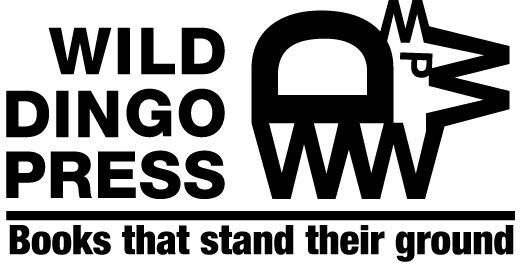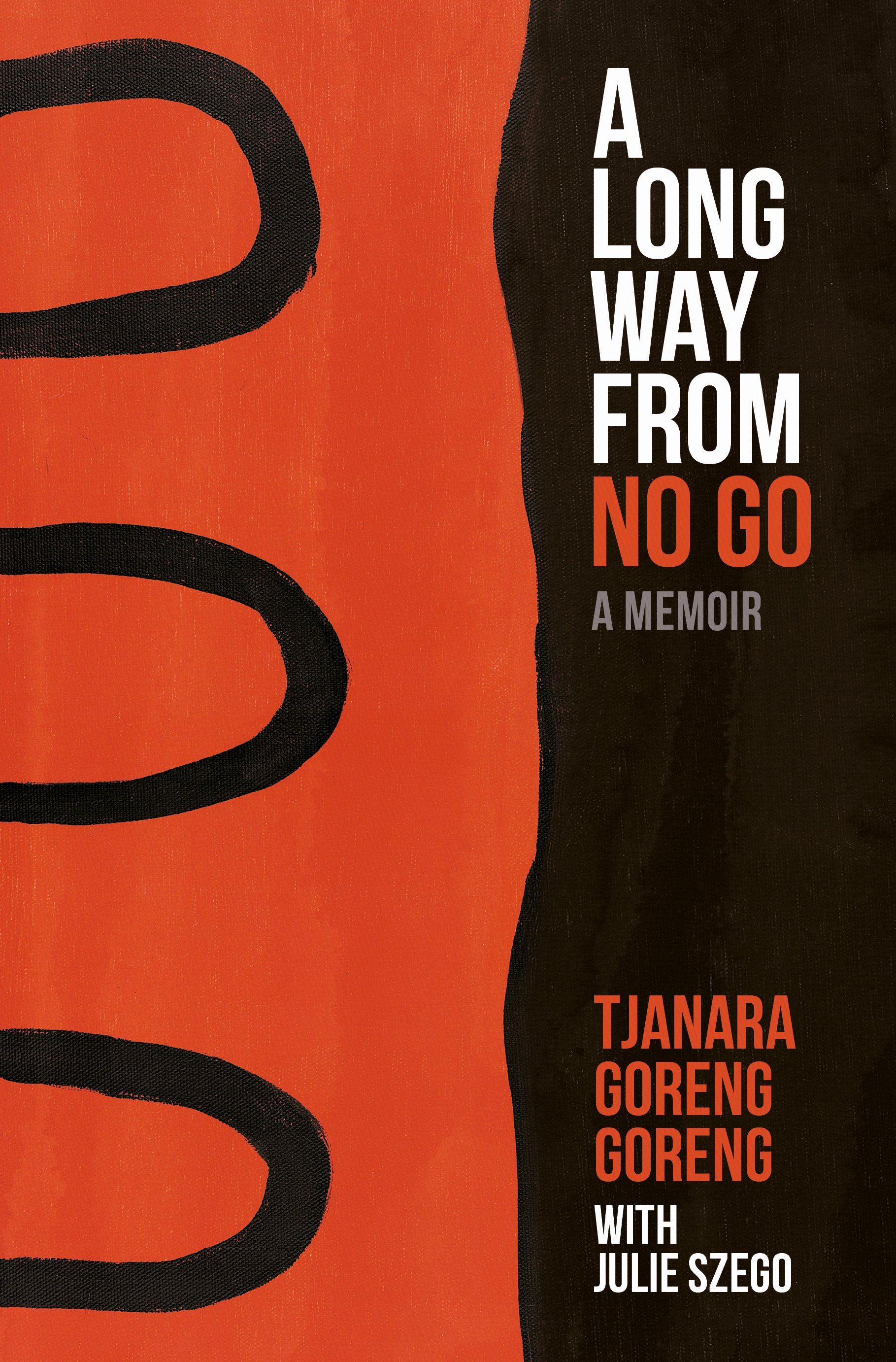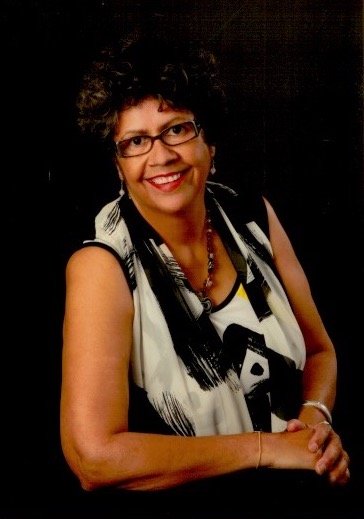A Long Way from No Go
Tjanara Goreng Goreng with Julie Szego
Life was tough and poor as an Aboriginal kid in No Go, in remote Queensland. Dr Tjanara Goreng Goreng navigates the treacherous waters of her childhood, immersed in the legacy of 200 years of brutal treatment of her mother’s people that has left its suppurating scars deep in their psyche. Tjanara’s parents believed that education was the only way to break through systemic poverty, and found ways to send all seven children to school that were at once desperate and fraught. A disempowered people are vulnerable to exploitation and abuse – in her case, by the Catholic clergy.
A strong-willed, successful student and athlete, after graduating from university, the times were ripe. She found her place in the new era of federal policymaking: land rights and self-determination, initiatives on health, education, and social justice that were spearheaded by Charlie Perkins and his bright young people. Tjanara was at the nerve centre of Australia’s political life, shaping policy during the most exciting and innovative period in Australian politics.
But she struggles to escape the dark side that leads straight back to her heritage – her experiences as an Indigenous Australian: the abuse, the daily acts of cruel racism, the despairing plight of her people, the addictions to numb the pain. Rising to a management position in Social Policy within the Prime Minister’s Department, the ideological landscape has taken a tectonic turn under the Howard government. When fraudulent claims are cooked up to give the government an excuse to send the military into Aboriginal communities in the Northern Territory, she courageously blows the whistle, and is sacked, charged and convicted for breaches of the Crimes Act relating to disclosure of confidential information; and is bankrupted for her actions.
Always the professional, engaged in numerous ways to help her people, her own damage leads her on a search for healing: from psychotherapy to Aboriginal knowledge to Indian meditation and spirituality.
Szego is captivated and captivates us with this extraordinary Australian whose irrepressible, playful wicked humour leaps off the pages, even as we glimpse the personal and communal pain and despair at times in a life that sweeps across the breadth of the land and its history.
Tjanara Goreng Goreng with Julie Szego
Life was tough and poor as an Aboriginal kid in No Go, in remote Queensland. Dr Tjanara Goreng Goreng navigates the treacherous waters of her childhood, immersed in the legacy of 200 years of brutal treatment of her mother’s people that has left its suppurating scars deep in their psyche. Tjanara’s parents believed that education was the only way to break through systemic poverty, and found ways to send all seven children to school that were at once desperate and fraught. A disempowered people are vulnerable to exploitation and abuse – in her case, by the Catholic clergy.
A strong-willed, successful student and athlete, after graduating from university, the times were ripe. She found her place in the new era of federal policymaking: land rights and self-determination, initiatives on health, education, and social justice that were spearheaded by Charlie Perkins and his bright young people. Tjanara was at the nerve centre of Australia’s political life, shaping policy during the most exciting and innovative period in Australian politics.
But she struggles to escape the dark side that leads straight back to her heritage – her experiences as an Indigenous Australian: the abuse, the daily acts of cruel racism, the despairing plight of her people, the addictions to numb the pain. Rising to a management position in Social Policy within the Prime Minister’s Department, the ideological landscape has taken a tectonic turn under the Howard government. When fraudulent claims are cooked up to give the government an excuse to send the military into Aboriginal communities in the Northern Territory, she courageously blows the whistle, and is sacked, charged and convicted for breaches of the Crimes Act relating to disclosure of confidential information; and is bankrupted for her actions.
Always the professional, engaged in numerous ways to help her people, her own damage leads her on a search for healing: from psychotherapy to Aboriginal knowledge to Indian meditation and spirituality.
Szego is captivated and captivates us with this extraordinary Australian whose irrepressible, playful wicked humour leaps off the pages, even as we glimpse the personal and communal pain and despair at times in a life that sweeps across the breadth of the land and its history.
Tjanara Goreng Goreng with Julie Szego
Life was tough and poor as an Aboriginal kid in No Go, in remote Queensland. Dr Tjanara Goreng Goreng navigates the treacherous waters of her childhood, immersed in the legacy of 200 years of brutal treatment of her mother’s people that has left its suppurating scars deep in their psyche. Tjanara’s parents believed that education was the only way to break through systemic poverty, and found ways to send all seven children to school that were at once desperate and fraught. A disempowered people are vulnerable to exploitation and abuse – in her case, by the Catholic clergy.
A strong-willed, successful student and athlete, after graduating from university, the times were ripe. She found her place in the new era of federal policymaking: land rights and self-determination, initiatives on health, education, and social justice that were spearheaded by Charlie Perkins and his bright young people. Tjanara was at the nerve centre of Australia’s political life, shaping policy during the most exciting and innovative period in Australian politics.
But she struggles to escape the dark side that leads straight back to her heritage – her experiences as an Indigenous Australian: the abuse, the daily acts of cruel racism, the despairing plight of her people, the addictions to numb the pain. Rising to a management position in Social Policy within the Prime Minister’s Department, the ideological landscape has taken a tectonic turn under the Howard government. When fraudulent claims are cooked up to give the government an excuse to send the military into Aboriginal communities in the Northern Territory, she courageously blows the whistle, and is sacked, charged and convicted for breaches of the Crimes Act relating to disclosure of confidential information; and is bankrupted for her actions.
Always the professional, engaged in numerous ways to help her people, her own damage leads her on a search for healing: from psychotherapy to Aboriginal knowledge to Indian meditation and spirituality.
Szego is captivated and captivates us with this extraordinary Australian whose irrepressible, playful wicked humour leaps off the pages, even as we glimpse the personal and communal pain and despair at times in a life that sweeps across the breadth of the land and its history.
-
2018 | 9780648215974 | 288 pages | Paperback | 234 x 153 mm | Memoir
-
Aboriginal, First Nations, indigenous, indigenous stories, Catholic Church, survival, reckoning, heritage, racism, social policy, government, politics, Australian history
-
-
Praise for A Long Way from No Go
Tjanara’s is a voice that needs to be heard all the way around Australia.
— Naomi Fryers, Independent Australia
Tjanara believes that ‘breaking the cycle of economic stagnation, social dysfunction and policy failure won’t happen unless Aboriginals seize control of their own destiny’. And for anyone interested in aboriginal affairs, this breathtakingly honest memoir is required reading.
— ArtsHub
In fact, epithets to describe this memoir and, in so doing the character of Tjanera Goreng Goreng and Julie Szego, are honest, reliable, balanced and genuine. The book is a fascinating read. It comes highly recommended, with the wish that all Australians would read it, and so learn an alternative view to that foisted on the public by wealthy political parties every four years.
— Ian Lipke, Queensland Reviewers Collective
A captivating, deeply reflective and inspiring story of a life that sweeps across the breadth of the land and its history, Tjanara lays bare the violent legacy of Australia’s colonial past, the pain and dysfunction in Aboriginal communities and her people’s struggle for dignity and self-determination.
“If you’re not faint hearted, and your mind, spirit and soul are open to hearing some hideous home truths about a particularly dark chapter in Australia’s history, you need to read this incredible tale of survival.”
More from Tjanara
Read this article in Mindfood.
Tjanara Goreng Goreng is a Wakka Wakka Wulli Wulli traditional owner from Central Queensland who was born in the outback at Longreach in central western Queensland. She has spent a total of 40 years as a public servant at Commonwealth and state levels and in academia, and was one of the bright young people taken on by Charlie Perkins, the first Indigenous person to head up the Department of Aboriginal Affairs Read more.
Julie Szego began her career as a lawyer before switching to journalism, spending over 12 years at The Age newspaper. She has also worked as a freelance journalist and senior Fairfax columnist, writing on a wide range of social, cultural and gender issues. Read more




